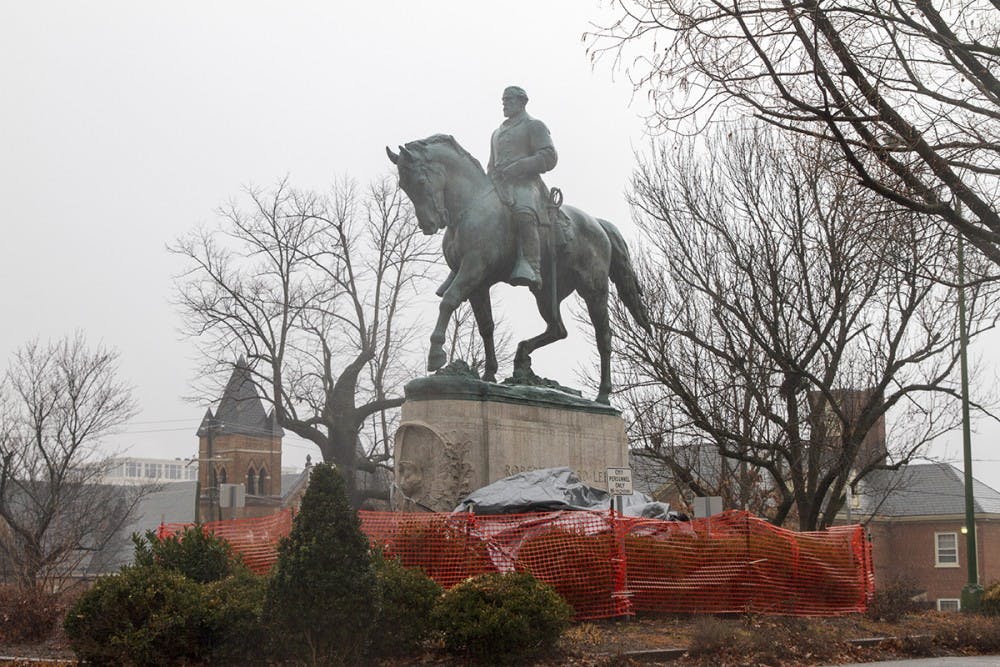Following a period of intense debate and national controversy, Charlottesville’s City Council voted to rename Lee Park as Emancipation Park in June of last year. The step away from Virginia’s Confederate past was widely praised throughout the city for its seemingly progressive connotations. However, as a leader in the local black community Mary Carey has asserted in her increasingly popular petition, the council’s chosen name of “Emancipation” fails to represent the will of the Charlottesville community. Moreover, the term’s broader historical implications undermine the agency of black citizens in their own abolition. The City Council’s failure to discern the name’s detrimental consequences for parts of Charlottesville’s black population reflects a severe shortcoming in their role as arbiters of public opinion. For this reason, Emancipation Park should be renamed with community input.
The petition, which — according to Carey — has amassed over 800 signatures online and on paper, emphasizes the City Council’s willing ignorance to public opinion. In the initial process of renaming the park, a community panel recommended four potential names for the park: Market Street Park, Festival Park, Central Park, and Community Park. Defying local suggestion, the council took the project into their own hands and decided on Emancipation Park. Rather than deferring to the community at large, the few members of City Council succumbed to emotionally-charged rhetoric to make a political statement. This condescending appeal to the liberal majority backfired when Carey and others pointed to the council’s total indifference to the Charlottesville black community’s viewpoint.
Ultimately, Carey and her supporters reject the choice because of its intense cultural and historical insensitivity. In her petition, Carey describes the name “Emancipation” as “insulting, disrespectful, hurtful, heartless, inhumane, mean spirited, and show[ing] a lack of care for people of color.” The term represents a regressive look at the past, disregarding modern movements toward equality. As the reactionary counterpoint to its former designation of “Lee Park,” Emancipation Park embodies the racial divisiveness that has characterized the Charlottesville community in recent years. To replace “Emancipation Park,” City Council should either opt for one of the four names suggested by the community panel or a name to honor a particular black historical leader.
By reducing centuries of black history in Virginia to a single pathos-packed buzzword, the members of City Council have inadvertently invoked a prevailing racist myth — the passivity of black slaves in their physical and social liberation. During reconstruction, a historiographical trend of excluding black people from accounts of the abolitionist movement emerged. Black slaves were portrayed as either humble yet apathetic beneficiaries of freedom or steadfast companions to their white owners. Since then, emancipation has been portrayed as a movement of white activists and politicians from the North. City Council’s decision not to name the park after an black abolitionist leader bolsters this myth of black indifference, especially considering the host of famous Virginians they could have honored — William H. Carney, Martin Delaney and Dred Scott to name a few.
Had the Charlottesville community been truly heard in City Council’s process of renaming, the subsect of the population that considers the name deeply offensive surely would have risen to the surface. According to Lawrence Gaughan, a facilitator of the Unity Coalition who is now running for Congress, the problem lies in City Council’s resistance to the local black community’s input. This specific failure of City Hall indicates an extreme deficiency in the organization’s relationship to its constituents. Moreover, the selection of the name “Emancipation” displays a larger national impulse to abate black citizens’ roles in their own history. Rather than attempt to bury their severe miscalculation in the renaming, City Council has an obligation to amend the current name after careful community deliberation.
Charlotte Lawson is an Opinion Columnist for The Cavalier Daily. She can be reached at opinion@cavalierdaily.com.







